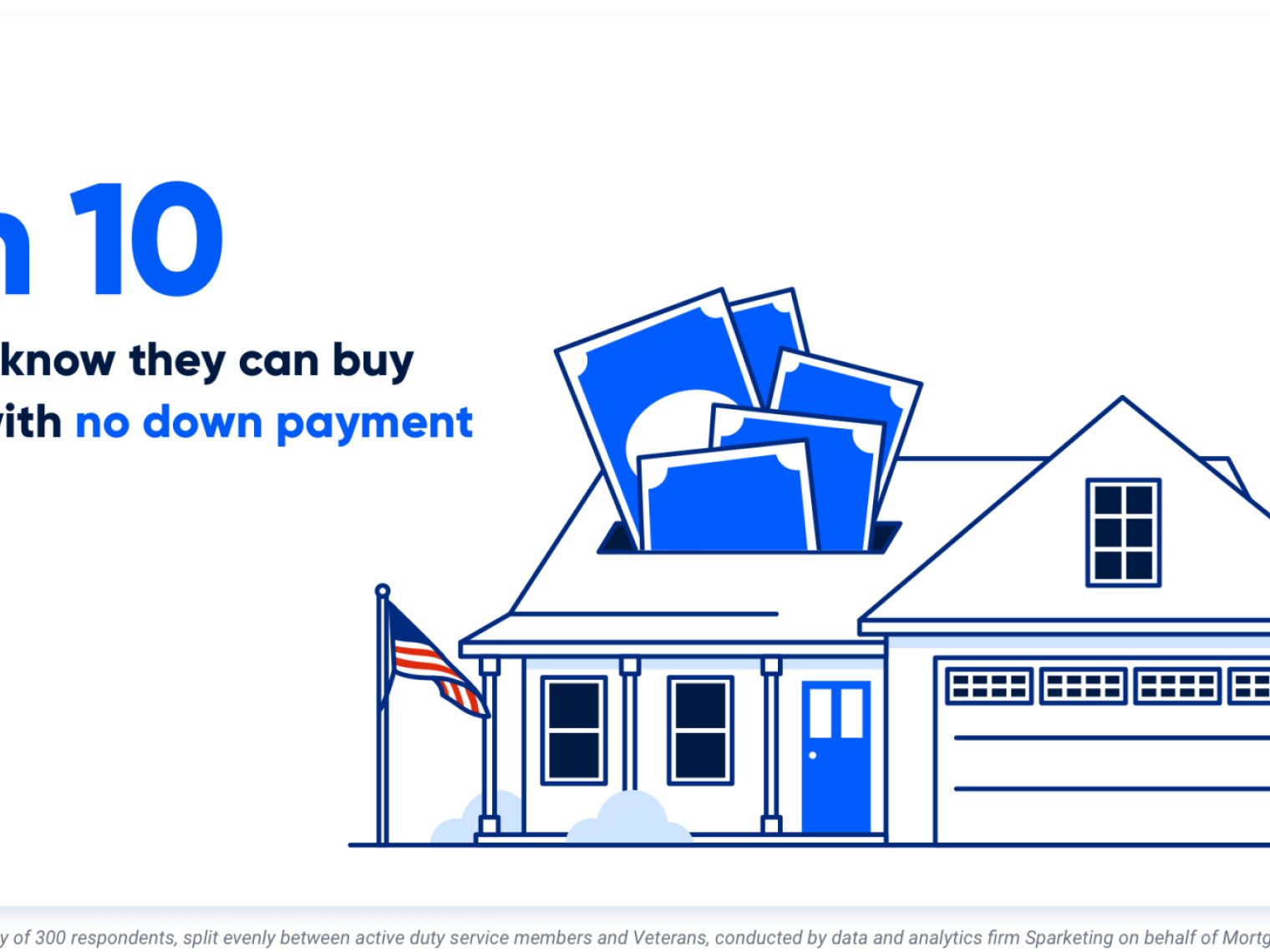- VA home loans have no income limits, but borrowers must demonstrate stable, reliable and verifiable income.
- Lenders evaluate debt-to-income ratios and residual income to ensure borrowers can afford mortgage payments and essential expenses.
VA lenders will need to look at your income to qualify you for a home loan. While there is no VA loan income limit for VA borrowers, not all types of income can be counted on your VA loan application.
VA Loan Income Limits
There is no income limit for VA home loans like some other government-backed mortgage options. Instead, the VA sets loan limits, which limit how much you can borrow before needing to provide a down payment, and VA loan limits are only applicable to borrowers who don’t have their full entitlement.
VA Lender DTI and Residual Income Requirements
There is no set debt-to-income requirement by the VA for home loan approval. However, borrowers with DTI ratios greater than 41% may encounter a few more hurdles during the underwriting process.
However, VA borrowers will need to meet VA residual income requirements, which are set based on your loan amount. Residual income is measured as monthly discretionary income left over after paying major bills such as your mortgage payment.
The VA wants to make sure that borrowers are able to afford their mortgage and still have enough left over to cover basic needs like gas, food, clothing, etc.
The VA’s residual income requirement is the closest thing to a minimum income requirement that VA homebuyers are likely to run into.
VA Loan Income Requirements
The VA wants to ensure that borrowers are consistently able to pay their mortgages, so income must meet three standards in order to count toward a VA loan application:
- Stable and reliable
- Anticipated to continue for the foreseeable future
- Sufficient in amount
In addition to this, the income must be verifiable. One of the most common approaches is obtaining a Verification of Employment (VOE) from your employer. A VOE lets your lender know how much money you make, how long you’ve been there and your position at the company.
You can also provide proof of income through documents like tax returns, recent pay stubs or W-2 forms, which help verify your earnings and financial stability.
Self-employed income can be tricky to verify, so it’s important to start the conversation with a loan specialist early in the homebuying journey.
Qualifying Income for VA Loans
While your full-time job can make up the majority of your verifiable income, other forms of income can be used toward your VA loan as well. During your evaluation, a VA lender can only consider certain types of income. Sources of verifiable income generally include:
- VA disability income
- Salary
- Spouse’s salary (if the spouse is co-signing on the loan or the purchase is in a community property state)
- Overtime and bonuses
- Part-time or second jobs
- Commission-based income
- Self-employed income
- Basic Allowance for Housing (BAH)
- Basic Allowance for Subsistence (BAS)
- Retirement income
- Pension
- Rental income
- Stock dividends
- Interest payments
- Royalty payments
- Alimony, child support and maintenance payments
Generally speaking, your lender will need a two-year history of each of these income sources for them to count toward your VA loan. This history is required because it shows lenders that it’s a stable, reliable source of income. If there are discrepancies between the amount of income you receive each year, the average of the last two is typically used.
For example, let’s say you get a $2,000 bonus at work one year and then get a $5,000 bonus the next. In this case, $3,500 ($7,000 divided by two) would likely be factored into your total income.
Income Sources That May Not Count
There's definitely a gray area when it comes to VA loan income assessment. If a VA loan applicant’s income is from one of the following sources, a lender may or may not decide to count it in the total evaluation:
- Income from a brand new full-time job
- Income from a part-time or secondary job that has continued for less than two years
Again, this goes back to the reliability standard. If you have less than two years of employment, you may still qualify for a VA loan depending on specific lender guidelines. Lenders must see a history of stable income, so they know they are financing a home within the borrower's means.
Income That Won't Count Toward a VA Loan
Some income streams simply don’t measure up to the “stable and reliable” test. Lottery winnings or one-time Christmas bonuses aren’t considered stable for the purposes of acquiring a mortgage.
Other types of income that don’t typically count toward a VA loan include income from a job that will end soon, VA educational allowances or unemployment compensation.
Income from the Cannabis Industry
Using income produced from the production and sale of marijuana will be difficult to verify for many VA lenders. The conflict between state and federal drug laws makes it a gray area, but like any other income, VA lenders are told to use their best judgment about what qualifies as effective income.
Bottom Line: VA Loans Are a Judgment Call
Income analysis is not an exact formula, and it requires VA lenders to make decisions on a case-by-case basis. The VA encourages underwriters to use their:
- Judgment
- Common sense
- Flexibility, when warranted
That flexibility throws both pros and cons at potential VA borrowers. It gives service members some wiggle room but can also create some confusion.
Also, keep in mind that your credit score plays an important role, and there are VA credit benchmarks to be aware of. If you have questions about how your income could help you get a VA loan, talk to a Veterans United VA loan specialist at 855-870-8845 or get started online today.
How We Maintain Content Accuracy
Our mortgage experts continuously track industry trends, regulatory changes, and market conditions to keep our information accurate and relevant. We update our articles whenever new insights or updates become available to help you make informed homebuying and selling decisions.
Current Version
Apr 23, 2025
Written BySamantha Reeves
Reviewed ByTara Dometrorch
Minor content updates and fact checked by team lead underwriter Tara Dometrorch.
Related Posts
-
 VA Loan Down Payment RequirementsVA loans have no down payment requirements as long as the Veteran has full entitlement, but only 3-in-10 Veterans know they can buy a home loan with zero down payment. Here’s what Veterans need to know about VA loan down payment requirements.
VA Loan Down Payment RequirementsVA loans have no down payment requirements as long as the Veteran has full entitlement, but only 3-in-10 Veterans know they can buy a home loan with zero down payment. Here’s what Veterans need to know about VA loan down payment requirements. -
 5 Most Common VA Loan Myths BustedVA loan myths confuse and deter many VA loan borrowers. Here we debunk 5 of the most common VA loan myths so that you can borrow with confidence.
5 Most Common VA Loan Myths BustedVA loan myths confuse and deter many VA loan borrowers. Here we debunk 5 of the most common VA loan myths so that you can borrow with confidence.


